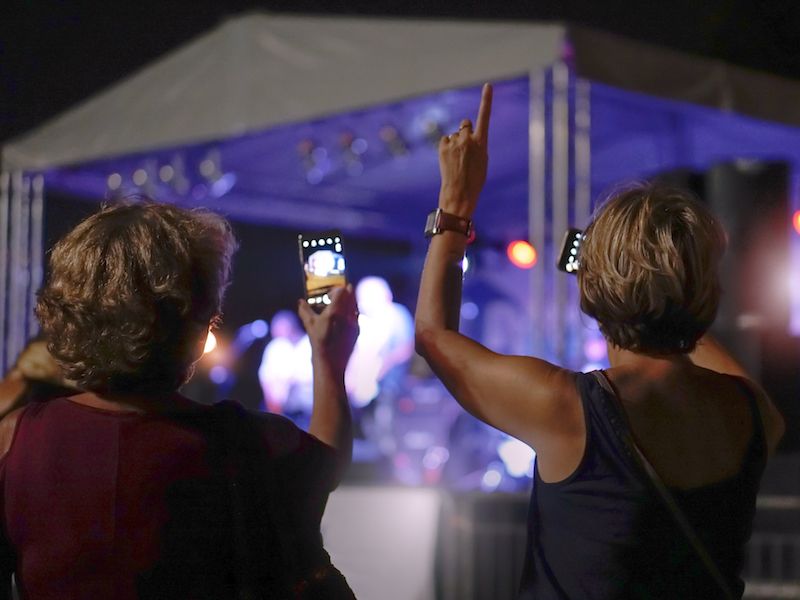
We’ve been getting excited about summer fun all year: trips to the beach, relaxing by the pool, and impaired hearing? That’s right, summer holds a lot of unseen potential risks to your hearing, either from loud noises or the environmental scenarios you might find yourself in. Any noises over 80 decibels could cause harm to your hearing, while swimming in pools or other bodies of water can lead to enduring hearing loss. To keep your hearing safe this summer, you need to be aware of your environment and take precautions. Read on to discover the summer’s six hidden hazards to your hearing.
At Concerts, Wear Ear Protection
Whether you’re at an indoor arena or an outside show venue you still need to wear hearing protection during concerts. 90 decibels is in the danger zone for ear damage and concerts reach this level even at outdoor venues. So whether you’re attending an inside or outside concerts, it’s a smart idea to wear earplugs. Earplugs reduce the sound while still allowing you to hear and enjoy the music. If you’re going to a show with young kids, consider getting them a heavy duty set of earmuffs since their ears are much more sensitive than those of adults.
Fireworks Are More Than Just Loud
Honestly, there are a lot of reasons to avoid fireworks in the summer. This is not about the skilled 4th of July fireworks show, we mean the backyard fireworks that lead to hundreds of incidents throughout the summer. As well as causing hand traumas, blindness, and home fires, backyard fireworks can also cause severe harm to your hearing since they’re known to reach decibel levels of 155. This 4th of July, leave the fireworks to the pros and enjoy the display from a safe and sound distance.
Mowers Can Cause Hearing Loss
If you’re serious about your yard, it’s likely that you’re out there at least once a week on your lawnmower, trimming your bushes and using your edger. But have you ever noted how off your ears feel after you get done, making everything sound muffled? That’s because the constant noise from your lawn tools impact your hearing over time. Maybe you’ve noticed landscapers wearing some kind of hearing protection, you should take a hint from them and use earmuffs or earplugs next time you attend to your lawn to ensure your hearing stay healthy.
How to Protect Your Ears at Beaches And Pools
Millions of people suffer from swimmer’s ear every summer, which occurs when the ear canal traps water that has lots of bacteria. The bacteria then infects the ear, causing painful earaches and swelling. It’s not only lakes and rivers that contain these bacteria, they can also be found in hot tubs and pools if they are not cleaned and treated thoroughly. But if you have your ears treated by a hearing professional you should be ok, and no irreversible hearing loss will happen. To be safe, when swimming in your pool, wear special swimmers earplugs and keep the chemical balance correct to minimize the likelihood of getting swimmers ear.
Boats and Other Water Sports
If you love the water, the summer season is beach and boating time for you. But, boat and jet ski engines are usually loud,they can get up to more than 100 decibels. Continual exposure to that kind of noise for about 15 minutes can cause irreparable hearing damage. Once more, it’s really in your best interests to use a couple of throw away, foam earplugs when you’re out on the water to make sure you don’t accidentally injure your hearing.
Car Races Can Harm Your Hearing
It doesn’t matter what kind of auto racing you enjoy, stock cars, midgets, motorcycles, drag racing, Formula 1. If you attend many auto-races this year, they all present a risk. 120 dB is inside of the danger zone for hearing damage and many races go well above this. As mentioned earlier, your children should use muffs whereas you should use earplugs at the very least. Because you might not be able to appreciate the sounds of any races in the future if you don’t.
